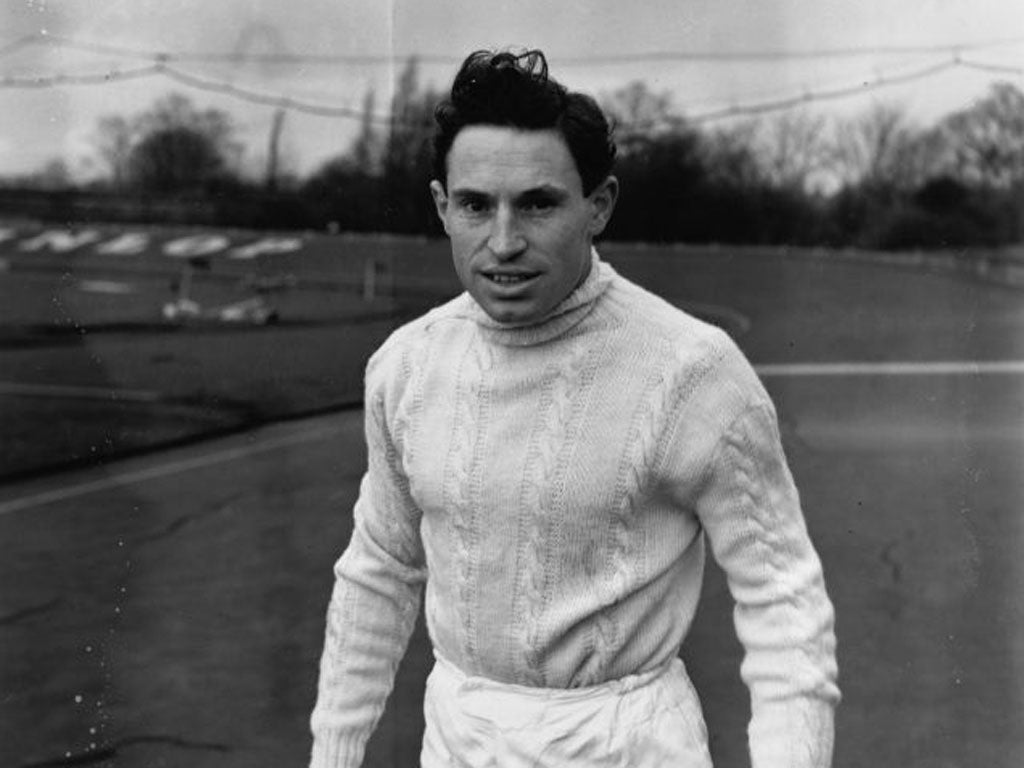The Last Word: Farewell to the warrior poet of Wales
Cliff Morgan, who died last week, will live long in the memory for his eloquence and principles

The study, made musty by ancient cigarette smoke, had the intimacy of a confessional. Mottled by the autumnal shades of wooden bookshelves and leather seats, it was a place of reflection and exultation, from which Cliff Morgan preached the sanctity of sport, and the emotions it aroused.
He greeted me in his home in Earls Court as yet another interviewer, seeking perspective from a more measured age. Even then, before throat cancer scoured his honeyed voice and sport was overwhelmed by scavengers and opportunists, Morgan's lyricism, warmth and integrity were legendary.
We spoke about the dignity of the human condition. He was an early advocate of the Paralympics, and channelled the embryonic movement's spirit. He resented the way it had been pigeon-holed as "disabled sport", and relished its capacity to inspire and elevate its participants.
His athletes were people, not playthings or commodities. Sport was their vehicle for self-expression. Competition encouraged them to rise above their fears and limitations. It was a source of joy, in unexpected situations, for unheralded individuals.
Rugby was mentioned, but only in the context of his upbringing, in a Nonconformist family in the Rhondda Valley, where the biggest social sin was excessive self-regard. "Fur coat, no knickers," he said, with gentle, ruminative laughter, as memories merged. The conventions of chapel were recalled, along with boyhood pleasures such as singing second tenor in the choir.
Here was living history, a warrior poet who took the bus to play rugby for his country, Wales. His boots were in a brown cardboard case, and his outside-half's swerve, pivot and sidestep had been perfected around the cowpats in the village game.
Morgan trained twice a week, on a kipper and a pint of bitter. He represented the British and Irish Lions, and became a hallowed broadcaster. As a commentator he had that rare gift of reflecting what we felt, not telling us what we had seen.
We have all been reacquainted with the definitive 90 seconds of a life which ebbed away, after 83 years, on Thursday. Morgan's accompaniment to that iconic Gareth Edwards try for the Barbarians against the 1973 All Blacks is a hosanna to the sport which shaped his values and suited his character.
It is impossible not to contrast his rejection of material reward with the greed and vulgarity which will climax tomorrow in the annual orgy of the closing of football's summer transfer window. His reflections, featured in one of many tributes to his generosity and intellect following his death, are worth repeating:
"You must not have too much. You can only live in one house, have one car if you are lucky, one roof above your head. You should not want too much, as long as you've got enough to pay the bills, educate the children. All the other things are futile, aren't they? They pass. They're gone. What endures are friendships and loyalty and respect."
His generation of sportsmen is fading into the distance. Soon, like old soldiers, they will be gone, subsumed into the record books and preserved in grainy, black-and-white archives. But they will live on through the eloquence of their words and the strength of their principles, and must not be forgotten.
That is why I trust the minute's applause for Bill Shankly before today's meeting of Liverpool and Manchester United at Anfield exceeds tribal boundaries. It has meaning beyond the usual formalities of respect and remembrance.
Shankly, like Morgan a product of a harsh, character-forming, coal-mining background, never forgot where he came from. He understood the power of a community united in song, and in spirit. He did things the right way.
Soon after my interview with Morgan, I received a hand-written note from him. It was an unforgettable courtesy, and contained an enduring reminder of the privilege of being around professional sport, as observer or participant: "We are blessed."
England's proper Ashes heroes
The girls of summer were back in the old routine at an ungodly hour in Durham yesterday morning, in their accustomed role as a warm- up act.
England's women cricketers duly received their version of the Ashes, but had still to exist in the shadow of Stuart Broad's boys club.
While women's sport deserves the respect of robust criticism in the event of underachievement, it also merits the reward of high praise when things go well.
The team led by Charlotte Edwards are the antithesis of the pitch-sprinkling, self-regarding, game-killing England men. They are authentic role models, who visibly enjoy what they do.
The multi-format Ashes series produced a series of heroines who flourished under pressure. Heather Knight's 157 effectively saved the solitary Test match; Lydia Greenway's 80 won the decisive T20 international; and wicketkeeper-batsman Sarah Taylor produced the most thrilling winning cameo of this cricketing summer when she launched into a full-length dive to take a right-handed catch which defied gravity, geometry and belief.Rejoice, as another lady once said.
Warp factor
So much for the Second Coming. Jose Mourinho is not even first among equals. The warped logic of modern football ensured that some celebrated his controversial reacquaintance with fellow manager Pep Guardiola, now at Bayern, in the European Super Cup. If the old game really needs such a graceless, disingenuous egotist, it is in more trouble than it realises.
Join our commenting forum
Join thought-provoking conversations, follow other Independent readers and see their replies
Comments